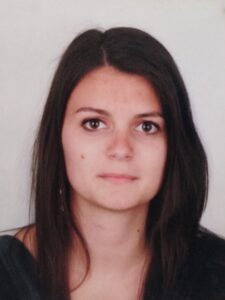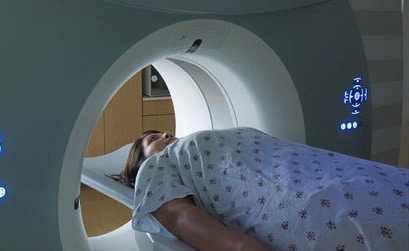Development of daily automated treatment adaptation for MRI guided radio-therapy of head and neck cancer patients

Project type:
PhD research
Project Leader:
Professor Uwe Oelfke
Researcher:
Vesela Koteva (pictured left)
Commencement date:
May 2020
Length of project:
4 years
Funding provided:
£120,000
Funder:
CHK Charities
Location:
The Institute of Cancer Research / The Royal Marsden Hospital
Head and neck cancer (HNC) is a challenging tumour site for radiotherapy (RT) due to its complex anatomy and proximity to numerous organs-at-risk (OARs). Assessment of geometrical shape, location and biological status of OARs and tumours for each treatment fraction are essential pre-requisites for optimal dose delivery of any daily fraction of a six-week treatment course.
Magnetic resonance imaging (MRI) performed at an MR-Linac machine can provide these key patient data directly prior to each treatment fraction. This would allow us to adapt the daily dose to these personal patient data. For instance, we could precisely target shrinking tumours, account for patient weight loss and any time-dependent dislocation or shrinkage of sensitive OARs, such as the parotid glands. It is expected that daily radiotherapy adaption will be a key factor to further improve HNC patient outcome by decreasing severe treatment-induced toxicity and enhancing tumour control.
Establishing an online adaptive workflow for head and neck cancer patients on the MR-Linac will enable the most accurate dose delivery tailored to the personal need of the individual patient. While we will first focus on geometrical accuracy based on anatomical images, we expect MRI-guided radiotherapy to include more and more functional images, characterising radiation response of the tumour and the gradual onset of OAR-specific toxicity. These exploratory studies being performed at the MR-Linac facilities in the UK (10 UK centres have signed up to this technology so far) will be essential for the development of personalised radiotherapy treatment strategies, like patient stratification or individual dose level adaptions during a course of treatment.
Within the 4-year time-frame of this PhD project, clinical treatment approaches in patients will be implemented with head and neck cancer treated at The Royal Marsden Hospital. This work will be carried out in co-ordination with Prof. K. Harrington’s CRUK Programme Grant (C7224/A23275).
Specifically, testing of automated on-line outlining and treatment planning in patients with locally advanced cancers of the oropharynx (separate HPV+ve and HPV-ve cohorts) and at the skull base.
Studies will address specific opportunities to reduce the volumes of normal tissues irradiated to achieve toxicity reduction (for HPV+ve oropharynx cancer) and/or tumour dose escalation for HPV-ve oropharynx cancers and disease at the skull base). Integration of functional imaging data will also allow treatment personalisation based on on-treatment assessment of therapeutic response.
The final 12 months of the research work will be used to integrate the developed pipeline of software modules directly into the clinical workflow of the MR-Linac. This work will include the adaptation of interfaces to our commercial treatment planning software and validation through end-to-end testing for a group of typical HNC patients. After successful completion of this phase, it is anticipated that clinical studies will commence in 2023.




